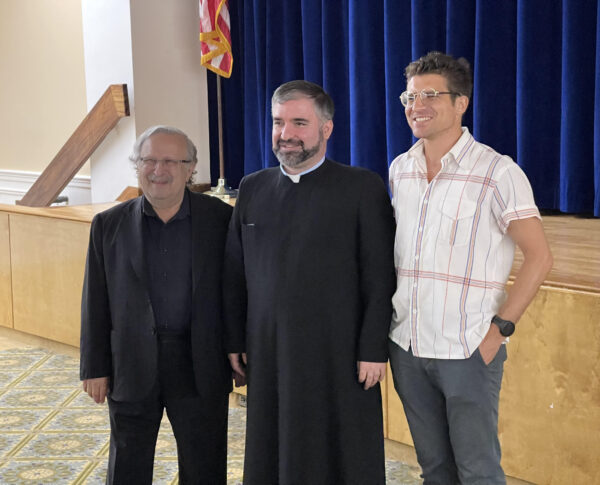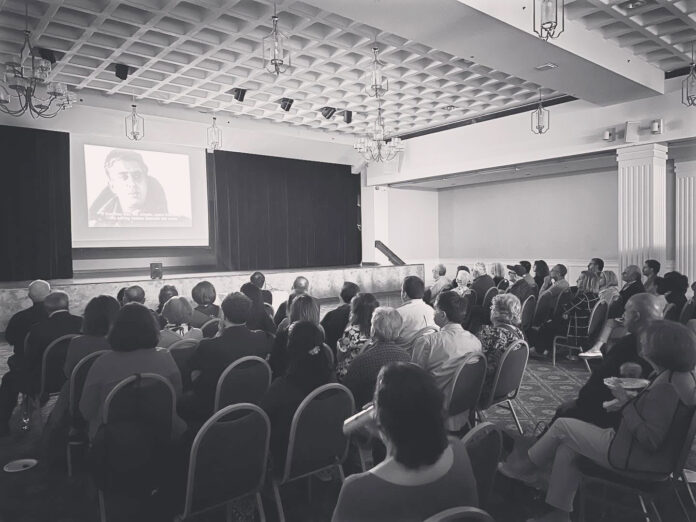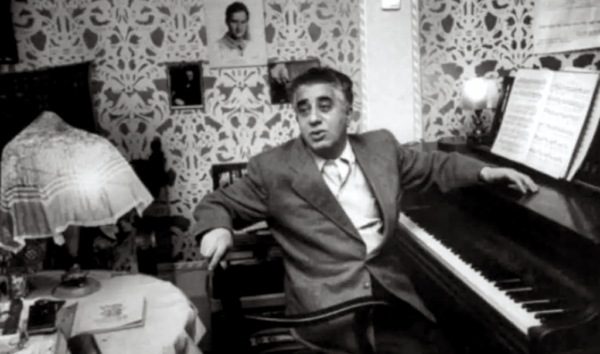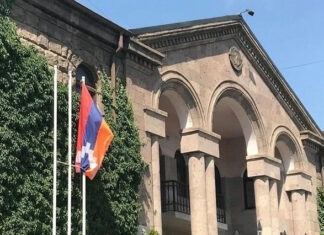By Stephan S. Nigohosian
NEW YORK — The dynamic music of venerated Soviet-Armenian composer and conductor Aram Khachaturian was explored at a special screening of “Khachaturian: An Archival Film,” on June 6 at the Eastern Diocese of the Armenian Church of America.
Best known for such groundbreaking works in the ballets “Spartacus” and “Gayane,” as well as the Masquerade Suite, Khachaturian’s infusion of Armenian-inspired musical tones and arrangements reflected the heritage he so dearly cherished.
The event, sponsored by the Diocese’s Krikor and Clara Zohrab Information Center, marked the iconic composer’s 120th birthday. It featured introductory remarks and a question-and-answer session by pianist and composer Şahan Arzruni, whose has made it his lifelong work to promote Armenian composers and preserve their musical legacies.
Arzruni’s credentials include a master’s degree from the Juilliard School. His extensive experience and knowledge of music theory, history, and composition enabled him to highlight and convey Khachaturian’s brilliance in terms that the audience could understand and appreciate.

Attendees were treated to Arzruni’s personal insight into Khachaturian’s method, which he saw firsthand while collaborating with Khachaturian during one of the composer’s visits to New York City in 1972. One such session involved Arzruni inviting Khachaturian to his apartment to hear him perform his interpretation of the composer’s two albums of children’s music — which had never been recorded.









